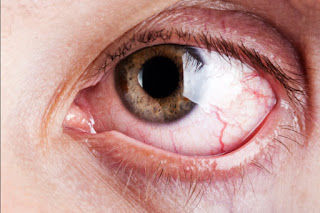Retina problem signs
Signs of Retina Problems: How to Identify Potential Issues Early On
The retina is a crucial part of the eye responsible for converting light into neural signals that the brain can interpret. Any problems with the retina can lead to vision loss or blindness if left untreated. This article will cover the signs of retina problems, how to identify potential issues early on, and what treatments are available.
Understanding the Retina and Its Functions
Before we dive into the signs of retina problems, it's important to understand what the retina is and what it does. The retina is a thin layer of tissue located at the back of the eye, and it contains millions of light-sensitive cells called rods and cones. These cells are responsible for capturing light and converting it into electrical signals that travel to the brain through the optic nerve.
Common Signs of Retina Problems
There are several signs of retina problems that you should be aware of. These signs may appear suddenly or develop over time, and they can affect one or both eyes. Here are some of the most common signs of retina problems:
Blurred Vision or Distorted Images
One of the earliest signs of retina problems is blurred vision or distorted images. This can happen when the macula, a small area of the retina responsible for sharp central vision, becomes damaged. Macular degeneration is a common condition that can cause blurred vision, distorted images, or blind spots in the center of your visual field.Floaters and Flashes
Floaters are small, dark spots that move around in your field of vision, while flashes are brief streaks of light that appear in your peripheral vision. Both of these symptoms can be signs of a retinal tear or detachment, which requires immediate medical attention to prevent permanent vision loss.
Shadow or Curtain Over Your Visual Field
If you notice a shadow or curtain over your visual field, it could be a sign of a retinal detachment. This condition occurs when the retina separates from the underlying tissue, causing a loss of vision in the affected area.
Loss of Peripheral Vision
A loss of peripheral vision can be a sign of glaucoma, a condition that damages the optic nerve and can lead to blindness if left untreated. Glaucoma often has no early symptoms, so it's important to get regular eye exams to catch it early.
Sudden Loss of Vision
If you experience sudden loss of vision, it could be a sign of a retinal artery occlusion, which occurs when a blood clot blocks the flow of blood to the retina. This is a medical emergency that requires immediate treatment to prevent permanent vision loss.
Risk Factors for Retina Problems
Certain factors can increase your risk of developing retina problems, including:- Age
- Family history of retina problems
- Diabetes
- High blood pressure
- Smoking
- Obesity
Prevention and Treatment Options
While some retinal problems cannot be prevented, there are steps you can take to lower your risk of developing them. These include:
- Eating a healthy diet rich in fruits and vegetables
- Quitting smoking
- Managing diabetes and high blood pressure
- Wearing protective eyewear in hazardous
- environments
- Getting regular eye exams
If you do develop a retina problem, there are several treatment options available, including:
- Laser therapy to repair a retinal tear or hole
- Surgery to reattach a detached retina
- Medications to manage retinal vein occlusion or macular degeneration
Conclusion
The signs of retina problems can vary depending on the type of issue you're experiencing. It's important to recognize these signs early on to prevent permanent vision loss. If you notice any changes in your vision, it's important to seek medical attention right away. By taking steps to prevent retina problems and getting regular eye exams, you can By taking steps to prevent retina problems and getting regular eye exams, you can catch potential issues early on and receive prompt treatment if needed. Remember, maintaining good eye health is essential for preserving your vision and quality of life.
FAQs
1: Can retina problems cause permanent vision loss?
Yes, if left untreated, retina problems can cause permanent vision loss.
2: What are some lifestyle changes I can make to lower my risk of retina problems?
Eating a healthy diet, quitting smoking, and managing diabetes and high blood pressure are all lifestyle changes that can help lower your risk of retina problems.
3; Are there any early warning signs of retina problems?
Yes, some early warning signs of retina problems include blurred vision, floaters and flashes, and a shadow or curtain over your visual field.
4: Can retina problems be treated?
Yes, there are several treatment options available for retina problems, including laser therapy, surgery, and medication.
5: How often should I get an eye exam to check for retina problems?
It's recommended that adults get a comprehensive eye exam every 1-2 years, or more frequently if recommended by an eye doctor based on your individual risk factors.
Related Posts ⬇️⬇️⬇️
1: How can I improve my eyesight naturally at home?
2: What is Glycogen Disease: Causes, Symptoms, Diagnosis, Treatment, and Prevention
3: How to take care of a pregnant woman everyday
4: How to eat healthy food everyday









0 टिप्पणियाँ